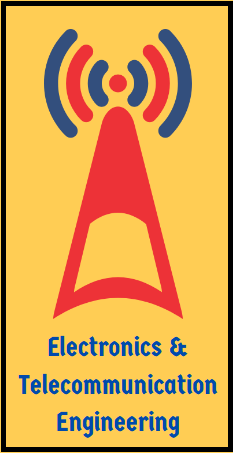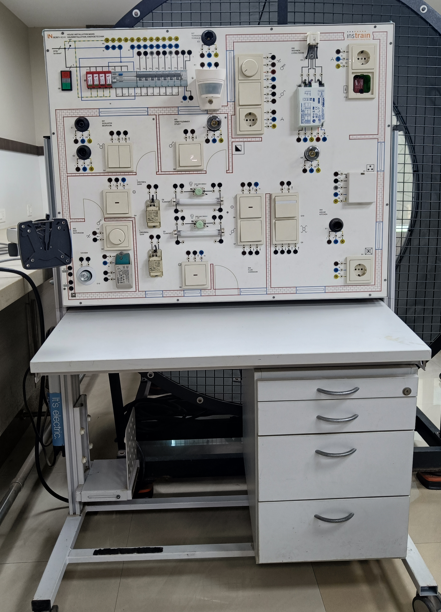
“Innovate, Communicate and Transform”
The Department of Electronics and Telecommunication Engineering is one of the oldest departments of the school, which was established in 2006. The Department offers B Tech and Ph D programmes in Electronics and Telecommunication Engineering. The Department has well-qualified and highly experienced faculty members with a minimum of 10 to 35 years of teaching and industrial experience.
The Department of Electronics and Telecommunication Engineering is at the forefront of technological advancements, focusing on the design, development, and implementation of electronic and telecommunication systems. It encompasses a diverse range of fields including analog and digital electronics, signal processing, Wireless communication systems, AI and ML, IoT, Computer vision, etc.
Electronics and Telecommunication Engineering graduates will have:
PSO1: Apply the basic sciences and engineering knowledge in the design and development of complex systems in the areas related to electronics and communication engineering.
PSO2: Use the cutting-edge hardware and software tools with the obtained technical and
managerial skills to design software and systems for applications including signal processing, communication engineering, computer networks, VLSI design, and embedded systems.
PSO3: Possess the attitude of continuous learning for producing effective solutions for the applications, directly and indirectly, related to Electronics and Communication engineering.
The department offers various Electronics & Telecommunication Engineering programmes.
The Electronics & Telecommunication Engineering department has qualified faculty members.
At the Department of Electronics and Telecommunication Engineering, Research is an integral part of academic activity carried out within undergraduate and post-graduate programmes. Research has always been emphasized and encouraged by faculty and students to innovate quality research in an emerging area.
The Department is committed to maintaining the highest standards of rigor and Integrity in the conduct of its research.
The Department’s research strategy and review committee is responsible for establishing and reviewing policy guidelines for the proper conduct of research, including regularly reviewing and updating this code to ensure it takes into account current guidelines and relevant suggestions.
The faculty, students, and collaborators all share in the responsibility for promoting and verifying good practice and creating an ethos of professionalism and integrity in the Department’s research culture.
The research philosophy is to progress from inter-departmental collaboration to inter-institutional partnerships at national and international levels. The scope and scale of research have substantially evolved from the era of student projects to interdisciplinary research programmes at the state and national levels.
The main objective of promoting research is to strengthen teaching, learning & independent thinking and eventually contribute to the welfare of society – a process vital and important in the shaping of an academic institution.




Associate Professor and Head of Department
Professor (AL-14)
Professor, Electronics & Telecommunication Engineering, Incharge – BTI (Electronics &Telecommunication Engineering) Programme, Incharge- Student Activities, Coordinator Student Research Group and In-charge – LinkedIn initiative.
Assistant Professor (AL-12)
Assistant Professor (AL-11)
Associate Professor (AL-11)
Assistant Professor (AL-12)
Assistant Professor (AL-11)
Assistant Professor (AL-11)
Assistant Professor
Assistant Professor (AL-11)
Assistant Professor (AL 11)
Assistant Professor (AL-12)
Assistant Professor
Assistant Professor (AL-11)
Assistant Professor (AL-10 Electrical)
Lab Asst.
Lab Asst.
Lab Asst.
Lab Asst.
Lab Asst.
Lab Asst.
Lab Asst.